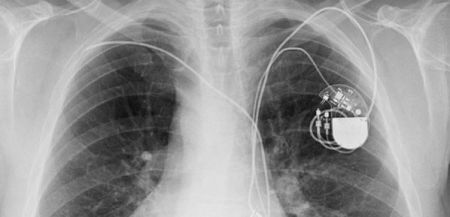According to new research from McMaster University to be presented at the Heart Rhythm Society (HRS) in San Francisco this week, a commonly performed test conducted during certain types of cardiac surgery does not provide any assistance and may even be potentially harmful.
The test in question is Defibrillator Testing (DT), conducted on patients who require implantable cardioverter-defibrillators (ICDs) in order to prevent sudden cardiac death. The procedure consists of placing the patient into cardiac arrest, with the aim of determining whether the defibrillator can recognise this and succeed in shocking the heart back into a normal rhythm. This is performed by placing the patient under general anesthesia. There is a risk of complications which, though uncommon, can possibly turn life-threatening.
Lead author Jeff Healey, who is associate professor of medicine in the Michael G. DeGroote School of Medicine at McMaster University explained that, as is the case with a number of issues in medicine, technology and knowledge do evolve and grow. He believed that the team has successfully presented evidence that the DT procedure, which has been conducted close to 30 years, is no longer relevant or required.
Healey went on to say that no longer performing this test would allow the physicians to save copious amount of time, money and most significantly, eliminate the risk of exposing the patients who are receiving an ICD to potentially serious complications.
The ICD resembles a pacemaker in that is is a small battery-powered electrical impulse generator meant as a permanent safeguard against sudden arrhythmias. Roughly 300,000 patients globally receive an ICD each year, with close to 70 per cent of them undergoing the routineDT.
Concluding, Healey stated that all around the world, the past ten years had seen an important change in practice towards implanting the ICD without prior test. This had been done without the scientific clear and robust evidence now available to support this change in practice.
Healey initiated a randomised trial, entitled the “Shockless IMPLant Evaluation (SIMPLE)” study in his aim to test the DT. Involving 2,500 patients worldwide, this is the largest randomised clinical trial of ICD recipients to date.
By comparing standard DT in patients to those who do not have the testing performed, the findings revealed that study participants who received ICDs without DT did as well as those who underwent the standard testing.
14 May 2014
Latest Articles
Surgery, cardiac arrest, test, defibrillator, cardiac surgery, implantable defibrillators
According to new research from McMaster University to be presented at the Heart Rhythm Society (HRS) in San Francisco this week, a commonly performed test...



























